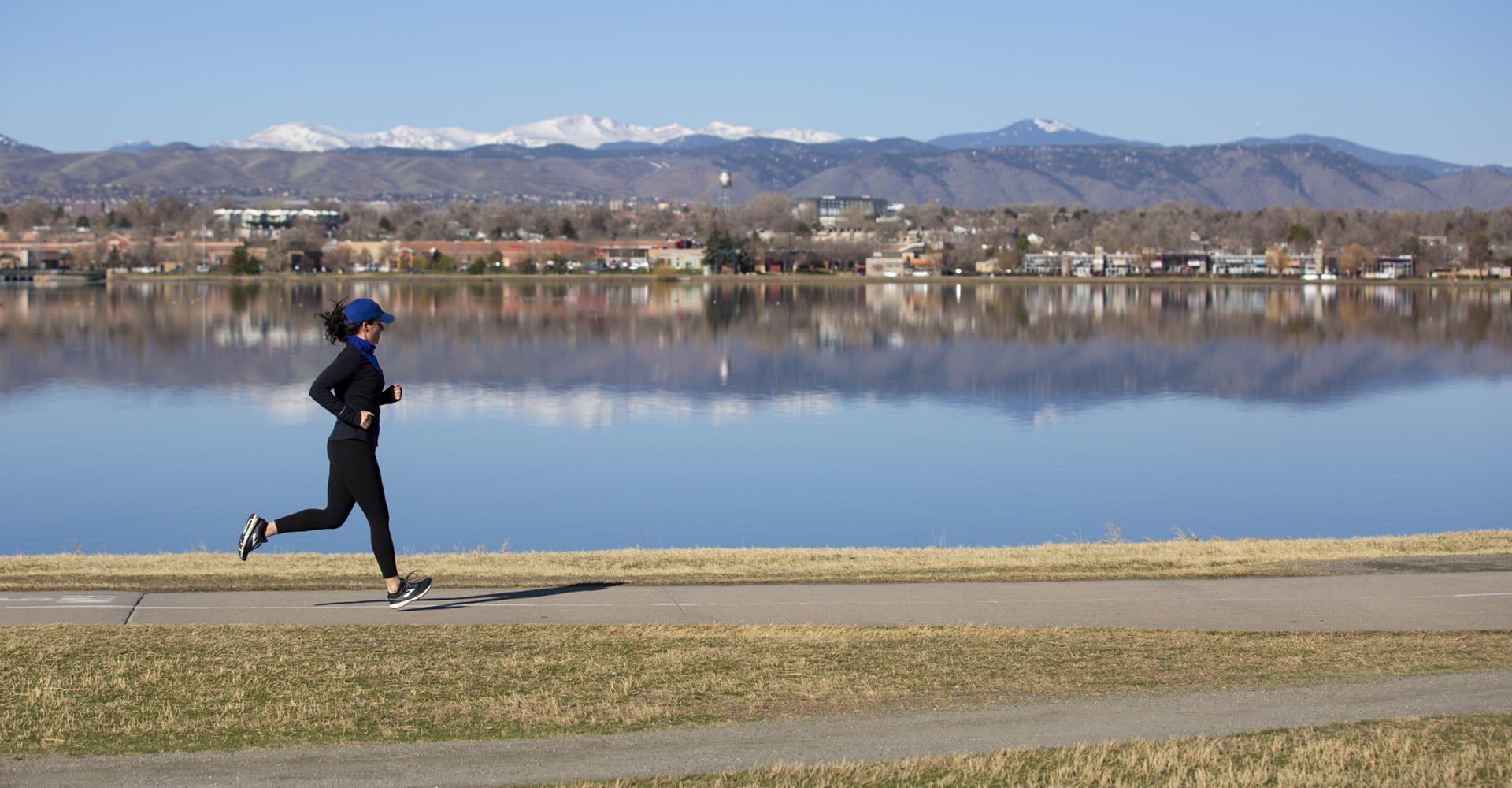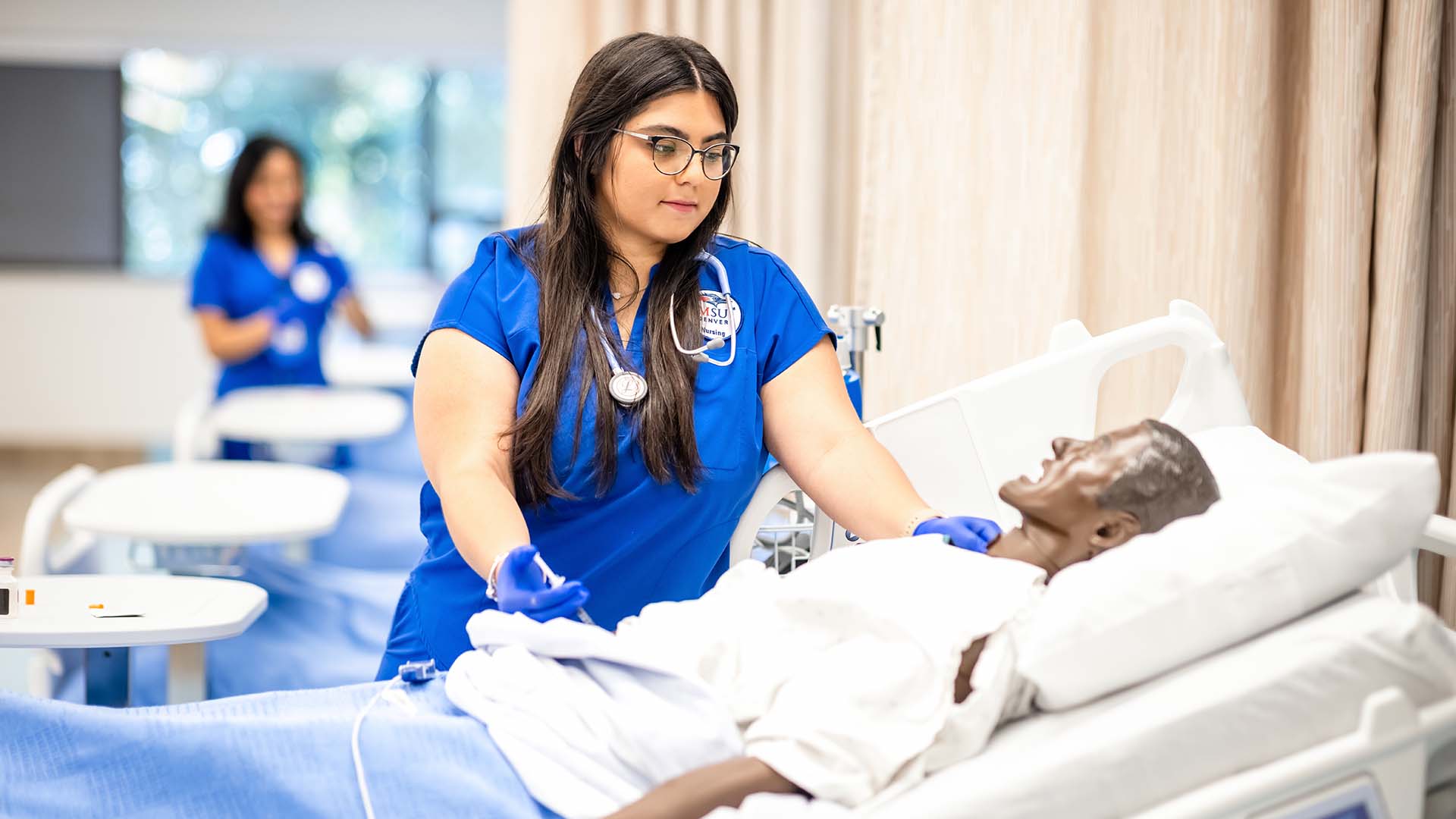How to exercise outside during COVID-19 outbreak
It’s never been more important to get out and exercise – for both body and mind. Here's how to do it safely.

There’s nowhere left to sweat indoors anymore.
All the gyms are closed. Yoga studios are shuttered. The rowing machines are still. HIIT classes are missed.
But there’s some good news: You can still exercise outdoors. Walking, running, cycling and hiking are all listed as “essential activities,” so your solo exercise routines can continue as long as you stay at least 6 feet away from other people.
Of course, there are also lots of imaginative ways to exercise and stay fit while at home. But according to Joseph Quatrochi, Ph.D., and Ben Thompson, Ph.D., both professors in the Department of Human Performance and Sport at Metropolitan State University of Denver, there’s no real replacement for getting out in the fresh air.
And as MSU Denver infectious disease specialist Sheryl Zajdowicz, Ph.D., explained to RED, those outside who practice physical distancing remain safe: “Getting outdoors for fresh air and exercise is great for the immune response and for mental health. There is low risk if you are maintaining distance (even if you are in the most vulnerable populations),” she said. “If you have any symptoms of COVID-19, however, you should stay indoors to recover or seek medical attention if your symptoms are severe.”
People are stressed out and stuck at home: Is exercise now more important than ever?
Quatrochi: Absolutely. All those benefits afforded to us from regular physical activity – in terms of blood pressure, cholesterol and glucose levels, for example – start to wane and even go in the opposite direction once the exercise stops. It’s really important right now for people to keep up their healthy habits so they can continue to reap those benefits.
What advice would you give people now about exercising outdoors?
Thompson: The most important thing is simply to continue exercising – and if you can do it outside, that’s even better. For those stranded at home who are new to exercise or don’t do it often, just going for a brisk walk around your local neighborhood is perfect. And if you do regularly exercise outside – whether that’s running, cycling or hiking – I’d say keep doing what you enjoy! At this point, changing your routine would not be beneficial.
Any practical tips for people who normally use equipment during workouts?
Quatrochi: These are admittedly strange days if you’re accustomed to using weights, gym machines and other fitness equipment. But there’s a great training approach called 10,000 Workouts in 10 Minutes that outlines the five basic movements you need to effectively work out: push and pull, rise and lower, rotation, locomotion and full-movement combinations using these skills. That’s basically what we do as human beings anyway. So whether you want to focus on strength, cardio or core stability, just incorporate these principles into your workout and you’ll be doing pretty darn well.
How much exercise is appropriate during these times – more or less than usual?
Thompson: I think some people might be tempted to exercise more than usual – just to combat their being stuck at home all the time – but that’s probably not the best idea. Increasing your activity level and exercising too much could lead to an accident or injury, and nobody wants that. If you do work out regularly, just stick with your usual routine.
Coronavirus is spreading fast – should people be concerned about exercising outdoors?
Quatrochi: I’ve not seen a single report to suggest an increased risk of infection from exercising outdoors. There’s a much better airflow outside than in built structures, which greatly reduces the transmission risk so long as you practice sensible social distancing. And besides, there are so many physiological and psychological health benefits associated with moving around in a natural environment. So, yes, it’s definitely worth going outside.

How important is physical exercise in maintaining good mental health?
Quatrochi: You can’t underestimate its value. Our bodies are made to move, and when we don’t move, bad things can happen. There’s plenty of solid research underscoring this. It’s also why one of the first lines of therapy for someone who is depressed will be regular aerobic and strength training. Another point: Physical exercise not only brings great mental and emotional health benefits, it is also an excellent stress reliever – which could be especially useful during these unpredictable days.
Being stuck at home inevitably means more snacking. How do you mitigate against that?
Quatrochi: First, evaluate your food habits. Track what you are eating and when – because if you’re snacking at irregular times, that’s likely from boredom and stress rather than hunger. Then create a plan for the times you’ll eat and stick to it. Research shows that hunger pangs come in waves, so if you can distract yourself for a few minutes – by drinking a full glass of water or even taking a little walk around indoors – often the urge will go away. Also, keep healthy snacks ready, such as carrots or celery, that will satiate your hunger while leaving the cookie jar untouched.
How can people motivate themselves to work out at home?
Thompson: No question: Exercising at home is tough because there are so many distractions and excuses. Psychologically, it’s incredibly hard to just roll off the sofa and start exercising. But one effective solution is to schedule specific exercise times. Put them in your calendar and let others in the house know what’s happening. And if you have children, incorporate them into your program. Working out together will both benefit them and hopefully use up some of their boundless energy!
What other steps can people take to stay in good health?
Quatrochi: Pay attention to the bigger picture by following all the basic tenets of healthy living – so not only regular exercise but good nutrition and plenty of sleep. Another factor that people often overlook is the value of a positive attitude, which actually correlates with increased immune-cell production. Taken together, all these elements can really help boost the immune system, which means you’ll have a better chance of coping with and fighting off any illness.
For those who’ve spent years in gyms and studios, do you think exercising outdoors might be a revelation?
Quatrochi: Yes, I really do. They say necessity is the mother of invention, and this coronavirus situation has certainly forced us to be flexible and creative in how we approach working out. And I think one silver lining might be, once this transient episode is over and we’re thriving again, that people will have discovered – and really liked – new exercise behaviors and activities they wouldn’t otherwise have tried.






